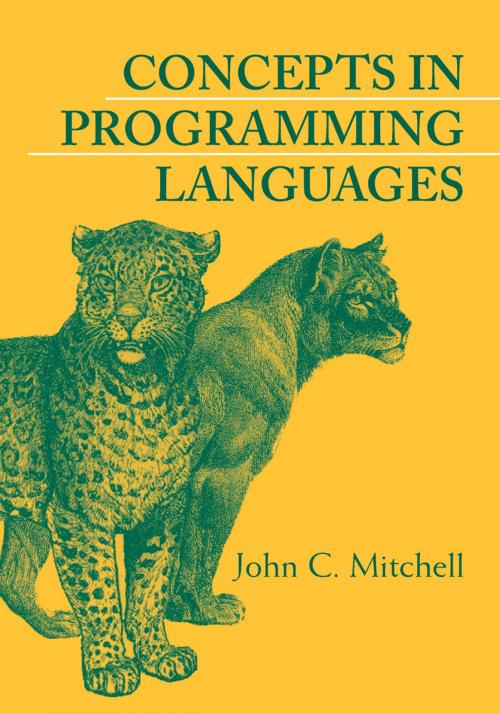Concepts in Programming Languages
Nonfiction, Computers, Advanced Computing, Computer Science, Programming, Programming Languages, General Computing| Author: | John C. Mitchell | ISBN: | 9781139636797 |
| Publisher: | Cambridge University Press | Publication: | October 14, 2002 |
| Imprint: | Cambridge University Press | Language: | English |
| Author: | John C. Mitchell |
| ISBN: | 9781139636797 |
| Publisher: | Cambridge University Press |
| Publication: | October 14, 2002 |
| Imprint: | Cambridge University Press |
| Language: | English |
For undergraduate and beginning graduate students, this textbook explains and examines the central concepts used in modern programming languages, such as functions, types, memory management, and control. The book is unique in its comprehensive presentation and comparison of major object-oriented programming languages. Separate chapters examine the history of objects, Simula and Smalltalk, and the prominent languages C++ and Java. The author presents foundational topics, such as lambda calculus and denotational semantics, in an easy-to-read, informal style, focusing on the main insights provided by these theories. Advanced topics include concurrency, concurrent object-oriented programming, program components, and inter-language interoperability. A chapter on logic programming illustrates the importance of specialized programming methods for certain kinds of problems. This book will give the reader a better understanding of the issues and tradeoffs that arise in programming language design, and a better appreciation of the advantages and pitfalls of the programming languages they use.
For undergraduate and beginning graduate students, this textbook explains and examines the central concepts used in modern programming languages, such as functions, types, memory management, and control. The book is unique in its comprehensive presentation and comparison of major object-oriented programming languages. Separate chapters examine the history of objects, Simula and Smalltalk, and the prominent languages C++ and Java. The author presents foundational topics, such as lambda calculus and denotational semantics, in an easy-to-read, informal style, focusing on the main insights provided by these theories. Advanced topics include concurrency, concurrent object-oriented programming, program components, and inter-language interoperability. A chapter on logic programming illustrates the importance of specialized programming methods for certain kinds of problems. This book will give the reader a better understanding of the issues and tradeoffs that arise in programming language design, and a better appreciation of the advantages and pitfalls of the programming languages they use.















